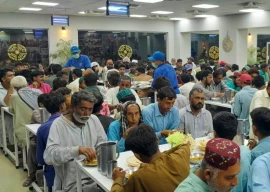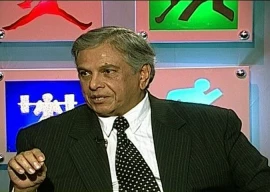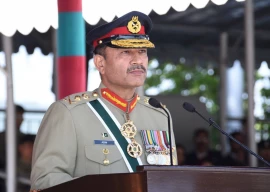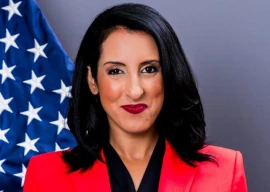
Looking ahead
However, party leaderships and workers realise the importance of the electoral process at the grass-root level and the fact that the local bodies, once elected, will surpass the provincial assemblies in their tenure – an inevitable reality that will have far reaching consequences on the next general elections.
A cursory glance at alliances made at the topmost level show two main power blocs, Pakistan Tehreek-e-Insaf (PTI) and Jamaat-e-Islami (JI) versus the tripartite alliance of Awami National Party (ANP), Pakistan Peoples Party (PPP) and Jamiat Ulema-e-Islam-Fazl (JUI-F).
However, keeping activists and candidates in line with party decisions can be an uphill task. The provincial spokesperson and information secretary of JI, Israrullah admitted maintaining party discipline is a tough task during such an election. Israr told The Express Tribune alliances with other parties are based on local dynamics. “Candidates have been given a free hand to choose in accordance with their respective areas,” he says.
While PTI and JI are allies in parts of Peshawar, in Buner they have an adjustment with ANP on two seats; in Hazara Division – which is a stronghold of Pakistan Muslim League-Nawaz (PML-N) – they are in an alliance, and in Chitral they stand with JUI-F. In Charsadda, they stand with QWP, a party that has bitter ties with PTI and was once part of the government in K-P. Similarly, PTI and JI have an alliance in Malakand Division, a stronghold of JI, and in southern K-P they have seat adjustments with other parties.
“We have allowed the district councils to decide on their own after they inform the party’s central leadership about coalitions,” said Israr about his party.
Strategising
For opposition parties in K-P, the situation remains no different. Aside from the tripartite alliance, JUI-F has formed alliances with every party with the exception of PTI, claimed JUI-F K-P Information Secretary Abdul Jalil Jan.
While the party stands with JI in some areas in Peshawar, in Swat it has made adjustment with Pakhtunkhwa Milli Awami Party and in Charsadda with ANP. As the southern districts remain a JUI-F stronghold, Jan said they only have a coalition with PPP in Lakki Marwat; in the remaining districts, JUI-F candidates are contesting on their own. “Our position in southern K-P is sound that is why we don’t need any coalition.” Jan added one JUI-F candidate had formed an alliance with PTI in Buner, but the party leadership put an end to it.
Out the window
With the patchwork of alliances across the province, it seems parties are not motivated by their ideological slants when deciding on whom to pair with – the sole motivation is the vote bank.
Published in The Express Tribune, May 25th, 2015.
























1714024018-0/ModiLara-(1)1714024018-0-270x192.webp)









COMMENTS
Comments are moderated and generally will be posted if they are on-topic and not abusive.
For more information, please see our Comments FAQ